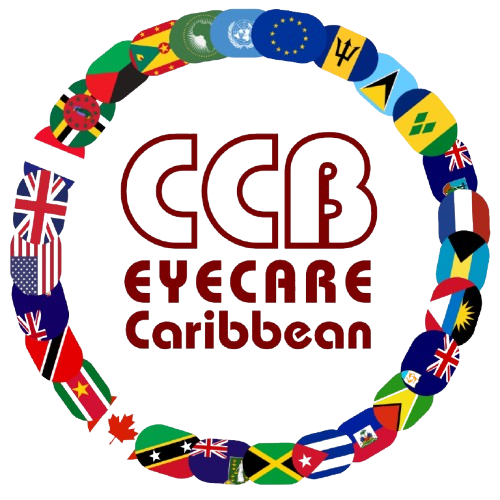
World Sight Day provides an opportunity to reflect on actions necessary to: Prevent blindness and visual impairment; While restoring sight and creating equal opportunities to persons whose sight cannot be restored.
As I write this brief message, I have no doubt that thousand of persons are becoming blind from one or more of the 5 leading causes of preventable blindness in the Caribbean: Glaucoma, Cataract, Diabetic Retinopathy – the group of conditions which cause blindness in children, and Refractive errors.
That is why we subscribe to and support the principles and targets of Vision 2020 (The Right To Sight).This is a global initiative. The Programme is guided by a series of World Health Assembly (WHA) Resolutions, including: The Resolution of the World Health Assembly on the Prevention of Avoidable Blindness and Visual Impairment.
CCB-Eye Care Caribbean coordinated the launch of the regional initiative in July 2000, under the patronage of the then Minister of Health of the Republic of Trinidad & Tobago. Since then, our Organization has been directly involved, in the development of National Prevention of Blindness Plans, and the implementation of more than thirty (30) eye health programmes across the Caribbean.
Based on internationally accepted calculations, up to 4% of the region’s population is blind or severely visually impaired.
That means that there are, at least 60 thousand persons who are blind, with a further 180 thousand so severely visually impaired that they need magnifiers and other low vision appliances, to use whatever little sight they have left.
Furthermore, we estimate that one in every thousand children of school age is blind, with 3 in every thousand being so severely visually impaired that they need low vision appliances (including large print text) to take advantage of available education opportunities.
One of the main reasons why the Caribbean has such a high prevalence of avoidable blindness, is the extreme shortage of Ophthalmologists, Optometrists, Refractionists and other eye health professionals across the region.
Our predicament is highlighted when we compare the ratio of key eye health professionals to population in the United Kingdom, versus the Caribbean. In the UK, the ratio of Ophthalmologists to citizens-residents approximates one to 24 thousand; While the ratio of Optometrists to the population is closer to one to 10 thousand.
In the English-speaking Caribbean, the ratio is approximately one Ophthalmologist to almost 125 thousand and one Optometrists to around one hundred thousand.
Until we can get the ratio closer to what obtains in countries like: Australia, France and the UK, we will continue to experience an epidemic of avoidable blindness and visual impairment.
That is why we commend the University of The West Indies (St. Augustine Campus) and the University of Guyana, for introducing the Bachelor of Science in Optometry.
Furthermore, as more and more young medical Doctors come back from Cuba, we have an extra-ordinary opportunity, to rapidly expand access to training in Ophthalmology.
Arvel Grant, CSW, B.Sc.- Sw. (Hons.) DPA, MPH
Chief Executive Officer
CCB/ Eye Care Caribbean
E-mail: arvel.grant@eyecarecaribbean.com
